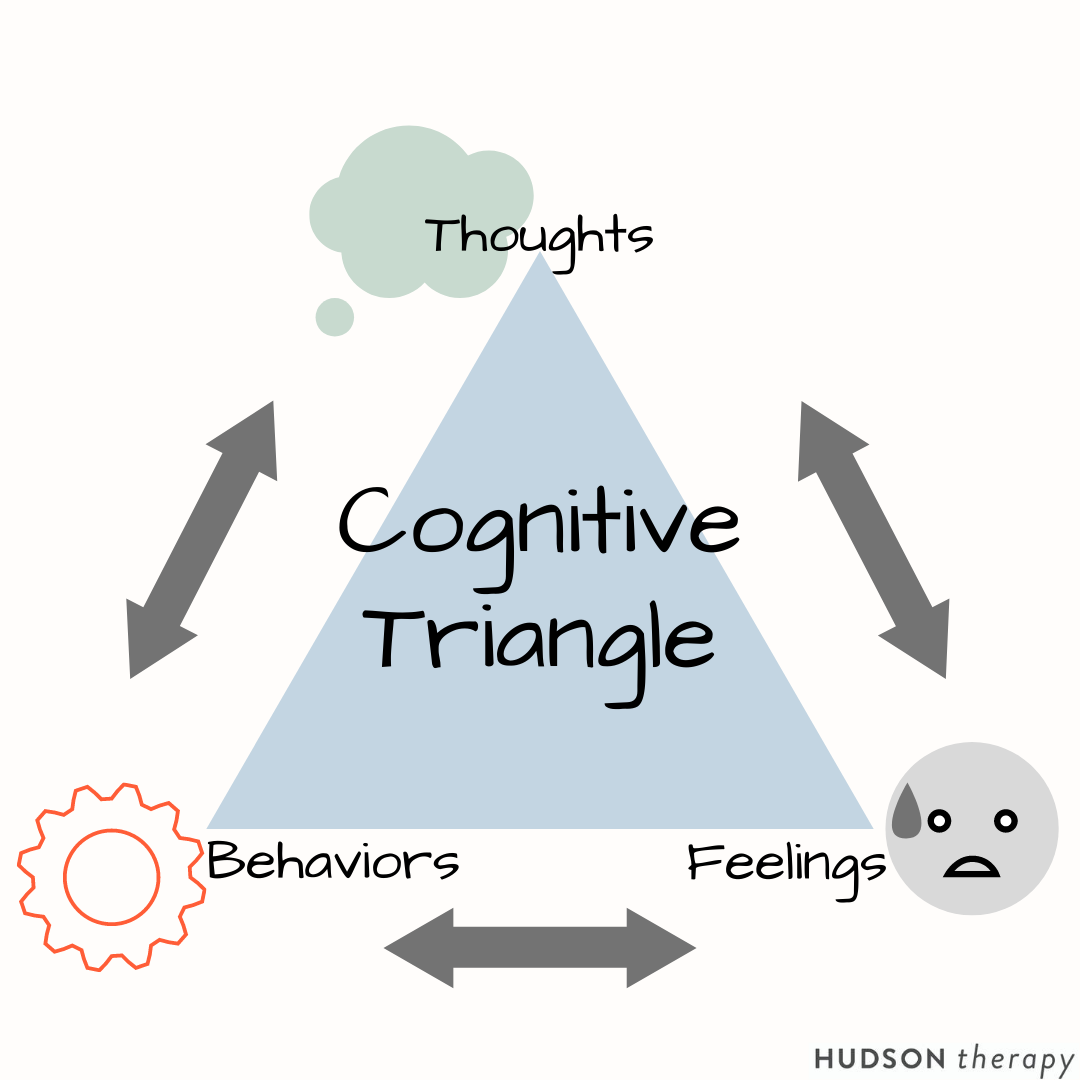The Cognitive Triangle: What it is and How it Works
The Cognitive Triangle: What it is and How it Works
From its advent by Aaron Beck in the 1960’s, Cognitive Behavioral Therapy, or CBT, has grown to be one of the most widely utilized therapeutic modalities. Many people have heard of CBT and its effectiveness for treating a variety of mental disorders, including anxiety and depression. One of the key components of CBT is the cognitive triangle, which demonstrates the interrelated nature of our thoughts, feelings, and behaviors.
What is the Cognitive Triangle?
CBT emphasizes the relationship between our thoughts, our feelings, and our behaviors. More specifically, how our thoughts change the way that we feel, which subsequently changes the way that we act, which then influences our thoughts. Without intervention, the process continues to repeat. The triangle looks a little something like this:
How Does the Cognitive Triangle Apply to Me?
Theory is great--it helps to guide our practice and ensure that we are providing the most evidence-based treatments that we have available. However, it can often seem unclear as to how we apply theoretical principles into our real life.
Here is how the Cognitive Triangle plays out in our day to day life:
You wake up feeling tired, groggy, and insecure. You have a massive presentation today and you hate having to speak in front of groups.
Your thoughts start up: “I’m going to mess up”, “No one is going to like my presentation”, “I can’t even talk in front of a group, how am I going to achieve anything?”, “I’m worthless”, “I’m a loser”, “I should just stay home so I don’t make a fool out of myself”. These thoughts often make up the internal dialogue that we have with ourselves. How many times have you found yourself saying similar things?
Now enter feelings. After a morning filled with internal verbal assault, you’re feeling even worse. You feel extremely anxious about your upcoming presentation (AKA the now impending doom). Overall, you’re feeling really bad about yourself and the last thing you want to do is present. Let’s step back for a minute. Is it any surprise that our thoughts so directly influence our feelings? The things that we tell ourselves matter.
Here comes the behavior. After time spent grappling back and forth and procrastinating going, you make it out the door and now you’re just starting your presentation. As you begin, your thoughts are running rampant and you’re feeling as anxious as ever. Even though you know your presentation subject matter very well, you can’t seem to articulate your thoughts in the way you want to. You barely scrape through your presentation, stumbling on your words and failing to connect the points you worked so hard to create. In common terms, you choked up. How many times have we done this? Gotten ourselves so worked up that we can barely make it through something that is typically well within our capabilities.
This presentation put another dent in your confidence. The event seems to justify all of those negative thoughts you had about yourself. The cycle repeats. And repeats. And repeats.
A Video on Thoughts, Feelings and Behaviors
How Do We Change Our Thoughts?
It is not until we bring light to this process and begin to interrupt the cycle that any change occurs. This is where a lot of work in therapy is focused. The change doesn’t happen easily, rather it is hard. Our brains become accustomed to the way we have always done things, and it takes a lot of active and consistent work over a long period of time to disrupt this cycle and instill more healthy ways of thinking, feeling, and behaving.
If this negative cycle is something that you relate to, know that you are not alone. We all have experienced this process in some capacity. However, if it is something that you feel is affecting your life and overall well-being, it may be time to take action. And you don’t have to do it alone--therapy is a great way to learn more about your internal dialogue and how it relates to your feelings and behaviors. Have more questions? Reach out to us to learn more about the process and see if therapy is a good fit for you!
Hudson Therapy is a Westchester county counseling practice located in White Plains, NY. Our team of therapists provide individual cognitive behavioral therapy to children, teens, and adults dealing with concerns such as anxiety, depression, and more.


